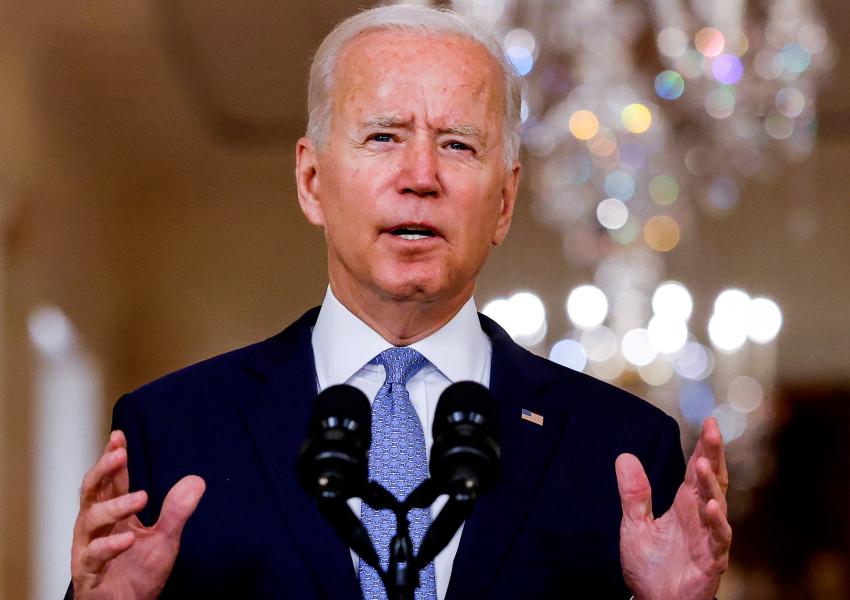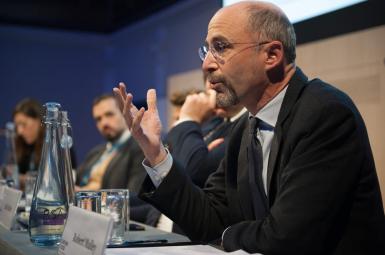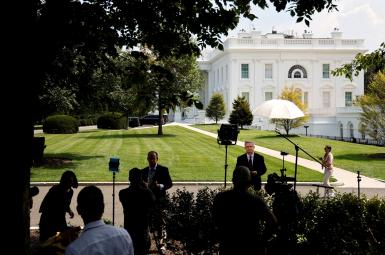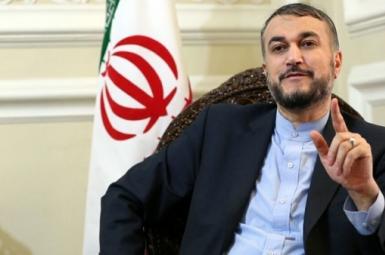
Iran Looms Large In The Shadow Of US Withdrawal From Afghanistan
With the chaotic and controversial US withdrawal from Afghanistan, the Biden administration has faced criticism domestically and internationally. President Biden’s proclamation that “America is back” has been met with skepticism in Western capitals given the perceived lack of consultation and unstable situation Washington is leaving behind in Afghanistan. This has led to speculation of what this means for the Biden administration’s other foreign policy priorities, specifically Iran.
The Iran nuclear negotiations have been stalled since June because of the Iranian presidential election. But the election soon morphed into a transition and then into the early days of the presidency of Ebrahim Raisi—with still no scheduled date for the resumption of talks to revive the Iran nuclear deal. This has generated alarm that Iran may be using the delay in nuclear negotiations as cover to advance its nuclear program.
In Washington, President Biden has been under fire not only from Republicans, but also Democrats for the withdrawal from Afghanistan. Congressman Seth Moulton (D-MA) called the Taliban’s takeover of Kabul “a disaster.” He blasted a speech given by President Biden in August where he claimed that part of the reason the United States did not begin evacuating Afghanistan sooner was because Afghans did not want to leave earlier. Moulton remarked “that was the single part of the president’s speech that I not only disagreed with, but I thought was just utter BS.” Congressman Jim Langevin (D-RI) penned an essay in Foreign Policy where he criticized not only the decision to withdraw from Afghanistan, but also warned the “United States also risks ceding influence to Russia and China. China could forge a partnership with the Taliban to complete its genocide of Uyghur Muslims. Pakistani officials are celebrating the victory of their preferred strain of extremism, and some of Iran’s militias have marched back from Syria into Afghanistan.”

Democrats have not just criticized President Biden’s withdrawal, but also pledged oversight over the decisions that led to the turmoil of recent weeks. In the US Senate, the chairman of the Senate Foreign Relations Committee, Senator Bob Menendez (D-NJ), promised to investigate the “Biden administration’s flawed execution of the US withdrawal.” He also added that the Trump administration’s actions—particularly their negotiations with the Taliban—would be part of the review. In the US House of Representatives, Congressman Gregory Meeks (D-NY), the chairman of the House Foreign Affairs Committee, has called for US Secretary of State Antony Blinken and US Secretary of Defense Lloyd Austin to testify. The Senate Intelligence Committee has also promised a review.
This backlash from members of President Biden’s own political party risks diminishing the amount of political capital he will have to pursue other foreign policy objectives, like rejoining the Iran nuclear deal. His goal has already encountered headwinds and skepticism from Senator Menendez, and could make the administration more risk-averse, particularly with a narrative already developing among Republicans that President Biden’s decisions are emboldening Islamic militants—with the Taliban taking over Afghanistan, ISIS-K prisoners being released there, and potentially giving massive sanctions relief to Iran, which the US government labels as the leading state-sponsor of terrorism. Members of Congress have also sought to ensure they have a chance to review any bid by the Biden administration to rejoin the nuclear deal under the Iran Nuclear Agreement Review Act (INARA)—something Biden officials have sought to avoid given its controversial status.
The Biden administration is also having to contend with anxiety from its allies and partners around the world. Israel has watched these developments warily. In the leadup to Israeli Prime Minister Naftali Bennett’s visit to Washington last week, there were media reports that the Israelis believed the Biden administration would need to rebuild credibility in the region after the Afghanistan controversy. This is where toughening the Biden administration’s Iran policy comes in—particularly over the formulation of a Plan B if nuclear negotiations collapse. Indeed, Israeli officials have been critical of the US handling of Afghanistan, with Foreign Minister Yair Lapid calling it on Wednesday “the right decision but wasn’t performed in the right manner.” The former chief of the Mossad, Yossi Cohen, wrote an opinion piece this week, where he voiced concern Washington would also withdraw from Iraq after Afghanistan.
Managing political backlash in the United States as well as the fears of US allies and partners will loom large—as political context—as the United States still seeks to return to the Iran nuclear deal.









